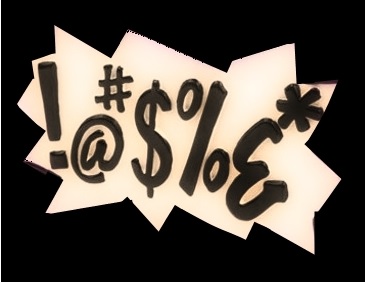“Bad” words are good for your health
Medical Pharmaceutical Translations • Feb 1, 2021 12:00:00 AM

Is 2021 the year of the swear word? Whether you call them expletives, profanities, obscenities, curse words, or cusses, “bad words” got thrown into the spotlight in early January, when Netflix released “History of Swear Words”, a docuseries tracing the origins of six choice swears, hosted by none other than the iconic Nicolas Cage.
Then, perhaps inspired by this, CNN.com released a fascinating list of the benefits of bad words, as backed by science.
Why all this attention? It could be that looking into naughty terminology is simply fun. But maybe it’s also due to the fact that 2020 was one hell of a year for most of us, and we need a little release. According to a number of studies, curse words may be able to provide that to us.
There are several reasons why people curse (or cuss, if you prefer), including out of anger, surprise, or even to make someone laugh. Whatever the reason for the expletives, studies have shown that those who pepper their words with obscenities may actually have above-average levels of verbal and social intelligence, not to mention creativity.
Interviewed by CNN, Emma Byrne, author of the book Swearing is Good for You, points out, for instance, that stroke patients who suffer damage to the right side of the brain, which handles creativity, often lose the ability to swear.
Another benefit of bad words, as many of us might know personally, is that they allow us to release anger and negative emotions without violence. This might mean dropping an “f-bomb” instead of, say, punching a hole into a wall.
Swearing helps to avoid physical confrontation, as well. Swearing expert Professor Timothy Jay remarks that cursing can become “a remote form of aggression”. He uses the example of shouting an obscene insult to a person across the street from you in order to acknowledge your anger and move on without a fight.
Scientists have also found that using bad words may be beneficial to your health.
Both the CNN article and “History of Swear Words” cite a study that found that people could grab a hand vice longer and with more force if they were swearing. Other studies have revealed that cursing may also be able to help us better tolerate pain or extreme conditions like cold. In one experiment, for instance, participants who cursed when submerging their hands in very cold water could keep them immersed longer than participants who didn’t call on the power of obscenity.
The science behind this phenomenon is that cursing taps into a primeval part of the brain and unleashes an adrenaline response, helping us better deal with pain.
There is, however, a caveat. As is the case with many things in life, frequent use of curse words can make them less powerful when it comes to fighting pain.
Still, fellow frequent cussers, take heart: The mental health benefits of cursing remain, regardless of how often you utter an expletive.
So if you need a little release, find an isolated place (or a place where no one would mind a few profanities) and shout some swear words into the void. It may help you deal with a bad day – or any other challenges that lie ahead.
Contact Our Writer – Alysa Salzberg
